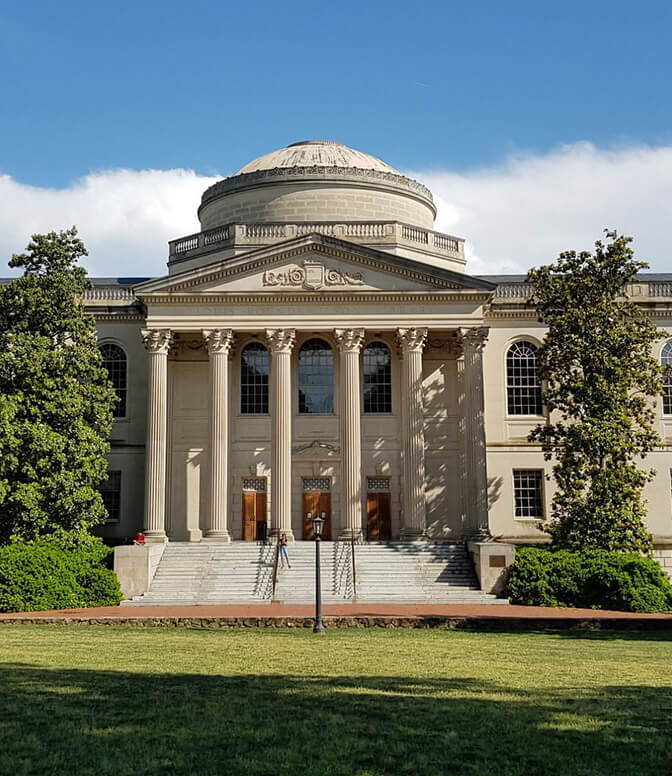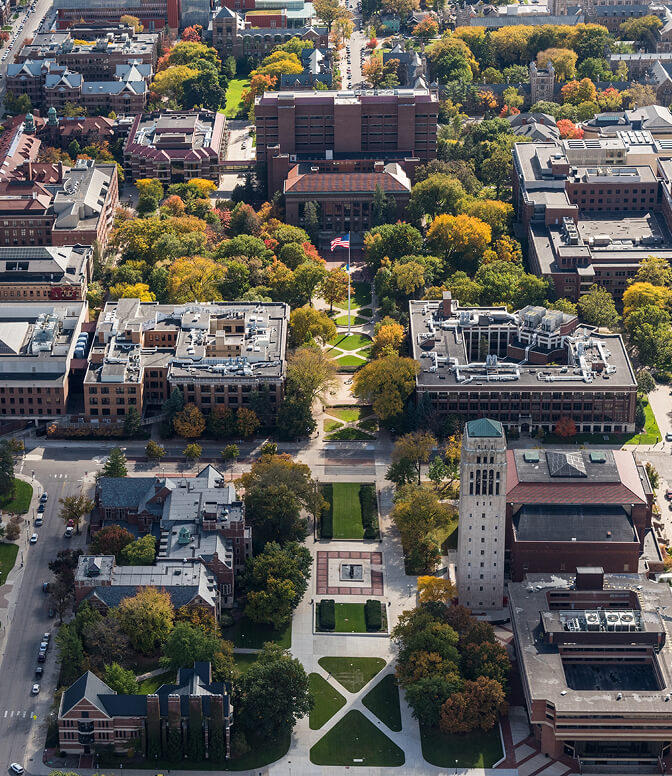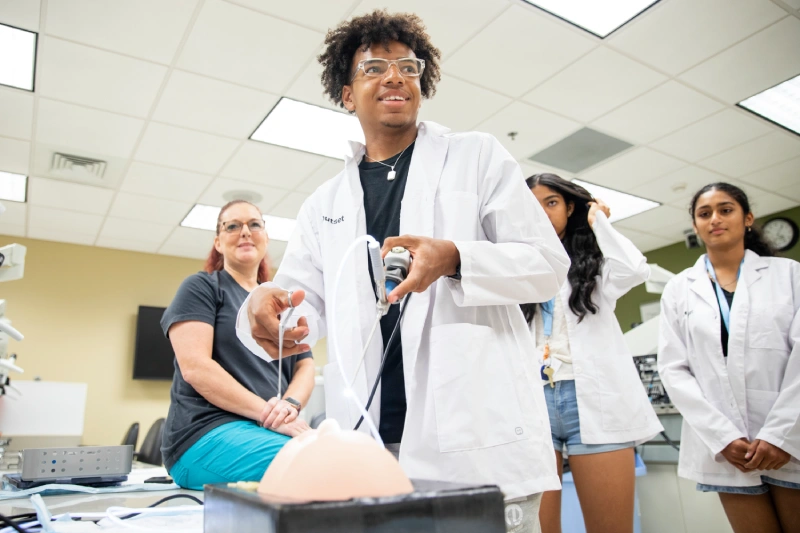Dreaming of a career where you can make a profound difference in patients' lives? Becoming an oncologist could be your path. Oncologists diagnose, treat, and support patients battling one of the toughest diseases, using cutting-edge therapies and groundbreaking research to improve survival rates.
With cancer affecting millions worldwide, skilled oncologists are in high demand. This career offers the chance to save lives and the opportunity to specialize in areas like medical, surgical, or radiation oncology.
Ready to discover the world of oncology? Let's dive in!
What Does an Oncologist Do?
Oncologists are medical doctors who specialize in diagnosing and treating cancer, guiding patients from the initial diagnosis through treatment and long-term care. Their role begins with a detailed review of a patient’s medical history and a thorough physical examination.
If cancer is suspected, they order and interpret various diagnostic tests, including blood tests to check for tumor markers, imaging studies like CT scans, MRIs, or PET scans, and biopsies to analyze tissue samples.
Once a diagnosis is confirmed, oncologists create personalized treatment plans based on the type and stage of cancer, as well as the patient’s overall health and preferences. They manage and prescribe various treatment options such as chemotherapy, which targets rapidly dividing cells, radiation therapy to destroy cancer cells with focused radiation, and immunotherapy to help the immune system fight cancer.
Other treatments include targeted drug therapies that attack specific weaknesses in cancer cells and hormone therapy for cancers influenced by hormones.
Throughout treatment, oncologists monitor progress, manage side effects, and adjust treatment as needed to ensure the best possible outcome. They also provide supportive care to maintain a patient’s quality of life.
Working alongside surgeons, radiation oncologists, and other specialists, oncologists coordinate comprehensive cancer care, ensuring patients receive the most effective treatment at every stage of their journey.
Education and Training Requirements: How to Become an Oncologist
Becoming an oncologist requires years of rigorous education and specialized training. The journey begins with earning a bachelor’s degree, typically with a focus on pre-medical courses like biology, chemistry, physics, and mathematics. While no specific major is required, maintaining a high GPA is essential for medical school acceptance.
During undergraduate studies, aspiring oncologists also gain hands-on experience through internships or volunteer work in healthcare settings and prepare for the Medical College Admission Test (MCAT).
After completing undergraduate studies, the next step is medical school, where students earn either a Doctor of Medicine (MD) or Doctor of Osteopathic Medicine (DO) degree. The first half of medical school focuses on advanced medical sciences such as anatomy, physiology, and pharmacology.
The second half involves clinical rotations across different specialties, including oncology, surgery, and primary care. This combination of classroom learning and hands-on training prepares students for residency.
Following medical school, aspiring oncologists enter a residency program in internal medicine, where they receive in-depth training in diagnosing and treating various diseases. Under the supervision of experienced physicians, residents gain critical experience in patient care, medical procedures, and clinical decision-making.
Once residency is completed, oncologists must pursue a fellowship to specialize in cancer treatment. Oncology fellowships provide advanced training in areas like medical, radiation, or surgical oncology.
Fellows develop expertise in cancer biology, treatment strategies, and emerging therapies while participating in research and clinical trials. These years of specialized training prepare oncologists to manage complex cancer cases and provide cutting-edge care.
To practice independently, oncologists must obtain a medical license by passing the United States Medical Licensing Examination (USMLE). They also pursue board certification through the American Board of Internal Medicine or a relevant specialty board.
How Long Does It Take to Become an Oncologist?
Becoming an oncologist takes serious dedication—more than a decade of education and training after high school. That might sound like a long road, but for those passionate about fighting cancer, the journey is worth it! Here’s a breakdown of what it takes:
- Undergraduate Education: About four years earning a bachelor’s degree while completing pre-med coursework in biology, chemistry, physics, and math.
- Medical School: Another four years of intensive study, including two years of classroom learning and two years of clinical rotations, where you’ll get hands-on experience in different medical specialties, including oncology.
- Internal Medicine Residency: A three-year program focused on diagnosing and treating a wide range of diseases while working directly with patients under the guidance of experienced physicians.
- Oncology Fellowship: After residency, you’ll complete an oncology fellowship lasting two to four years, depending on your chosen specialty—medical, surgical, or radiation oncology. During this time, you’ll gain expertise in cancer treatments, conduct research, and work with patients facing complex cancer diagnoses.
If you want to specialize even further, you can pursue additional training in areas like:
- Pediatric Oncology: Focusing on diagnosing and treating cancer in children.
- Hematology-Oncology: Combining cancer treatment with blood disorders like leukemia.
- Radiation Oncology: Specializing in cancer treatment using targeted radiation therapy.
Each additional specialty means extra years of training, but it also allows oncologists to develop highly specialized skills that make a real impact in the fight against cancer.
Skills and Qualities Needed to Become a Successful Oncologist
Becoming a successful oncologist requires a blend of technical expertise and personal qualities. Cancer care is not just about diagnosing and treating complex medical conditions—it’s also about providing compassionate support to patients facing some of the most challenging moments of their lives.
From a technical standpoint, oncologists must have a strong foundation in general medicine and pathophysiology. They need sharp analytical skills to interpret diagnostic tests, evaluate evolving research, and develop precise treatment plans. Oncology also demands technical proficiency in procedures specific to each subspecialty, which develops over years of medical training, residency, and fellowship. Developing these essential skills for pre-med students begins early and continues throughout medical education.
Beyond medical knowledge, emotional intelligence is crucial. Oncology is emotionally demanding. Compassion, empathy, and resilience are essential to navigating this field. Oncologists must be able to deliver difficult news with sensitivity, understand patients' fears, and cope with loss while continuing to provide exceptional care.
Strong communication skills are also vital. Oncologists must explain complex medical concepts in ways that patients and families can understand, actively listen to concerns, and facilitate discussions about prognosis and treatment options. Effective teamwork and clear documentation further enhance patient care.
Finally, adaptability and problem-solving are key. Cancer treatment is constantly evolving, requiring oncologists to think critically, adjust treatment plans when necessary, and remain flexible in uncertain situations. These skills develop over time, shaped by experience, mentorship, and continuous learning.
The Association of American Medical Colleges (AAMC) defines key competencies that medical students need to excel in their education and establish rewarding careers as physicians. This structured framework helps aspiring oncologists build the foundational knowledge and skills required for medical training and specialization in cancer care.
Average Oncologist Salary
If you're considering a career in oncology, the financial outlook is quite promising. Medical oncologists report average salary in the US to be around $448,974 per year, with a base pay range of $179,000 to $335,000 and potential for additional pay like bonuses. As you gain experience and specialization in specific areas of oncology, your earning potential can increase significantly.
Beyond the attractive compensation, the job market for oncologists shows strong demand across the country. This demand is driven by several factors, including the unfortunate reality of increasing cancer prevalence in our aging population. As cancer diagnosis rates continue to rise, the need for qualified oncology specialists grows proportionally.
The field also offers excellent career growth opportunities. Oncologists can advance their careers through specialization in areas like radiation oncology, surgical oncology, or focus on specific types of cancer.
Additionally, the constant evolution of cancer treatment approaches—from immunotherapy breakthroughs to precision medicine advances—creates ongoing opportunities for oncologists to expand their expertise and take on leadership roles in this vital medical specialty.
Challenges and Rewards of the Profession
The emotional strain is perhaps the most notable difficulty in this field. Working with cancer patients exposes you to suffering and sometimes death, which can lead to compassion fatigue and burnout. Practicing medical oncologists experience burnout, with younger oncologists at higher risk compared to their more experienced colleagues.
The workload is another major challenge. You'll manage complex cases, make critical decisions under pressure, and juggle multiple responsibilities simultaneously. Long hours, on-call duties, and a fast-paced clinical environment are all part of this reality. Additionally, you'll frequently deliver difficult news to patients and families, which never gets easier regardless of experience.
Despite these challenges, the rewards make this career deeply fulfilling. The opportunity to make a meaningful difference in patients' lives is incomparable – providing life-saving treatments, offering hope, and supporting patients through their cancer journey brings profound satisfaction.
The intellectual stimulation is another significant benefit. Oncology allows you to engage with cutting-edge medical science, contribute to research and clinical trials, and continuously learn and grow professionally. You can practice in various settings, from hospitals and academic medical centers to cancer centers and research institutions, giving you flexibility throughout your career.
Alternative or Related Careers
Interested in cancer care but unsure if becoming an oncologist is the right fit? There are several related careers that align with oncology and might match your interests and skills:
- Surgical Oncologist – Specializes in removing tumors through surgery and works closely with medical and radiation oncologists to develop treatment plans.
- Radiation Oncologist – Focuses on treating cancer with targeted radiation therapy, working to destroy cancer cells while minimizing damage to healthy tissue.
- Hematologist-Oncologist – Treats both cancer and blood disorders, including leukemia, lymphoma, and anemia, often using chemotherapy and targeted therapies.
- Oncology Nurse Practitioner (NP) or Physician Assistant (PA) – Works alongside oncologists to assess patients, prescribe treatments, and provide ongoing care, often handling routine cases to allow oncologists to focus on complex treatments.
- Cancer Researcher – Conducts studies to develop new cancer treatments, investigate risk factors, and improve patient outcomes through laboratory and clinical research.
- Palliative Care Specialist – Helps manage pain and improve quality of life for cancer patients, particularly those with advanced disease or undergoing intense treatments.
- Oncology Pharmacist – Specializes in chemotherapy and other cancer-related medications, ensuring safe and effective drug therapies for patients.
- Genetic Counselor (Oncology Focus) – Works with individuals and families to assess genetic cancer risks, providing guidance on preventive measures and testing options.
Oncology also offers subspecialties such as pediatric oncology, gynecologic oncology, neuro-oncology, and immuno-oncology, allowing professionals to tailor their careers to specific areas of cancer care.
Steps for Teens: How to Become an Oncologist
If you're passionate about fighting cancer and want to become an oncologist, starting early can give you a head start on your college pre-med path! The full journey takes over a decade after high school, but laying the groundwork now will set you up for success. Here’s how you can begin preparing for a career in oncology:
- Excel in science and math classes, especially biology, chemistry, and physics—these subjects are the foundation of medical knowledge.
- Maintain strong grades throughout high school, as medical school admissions are highly competitive.
- Join medical-focused summer programs for high school students, such as research programs or pre-med courses.
- Volunteer at hospitals or cancer treatment centers to gain firsthand experience in patient care.
- Shadow oncologists or other doctors to see what their workday looks like and learn about different specialties. You can also explore resources from organizations like the American Society of Clinical Oncology (ASCO), which provides guidelines, research updates, and career insights for aspiring oncologists.
- Participate in science fairs, research projects, or clubs (you can even create one!) to develop problem-solving and analytical skills.
- Look for colleges with strong pre-med or biology programs that will prepare you for medical school.
- Prepare for standardized tests like the SAT/ACT for college and later the MCAT for medical school.
- Find mentors in medicine, such as doctors, medical students, or researchers, who can offer guidance and advice as you move forward in your career.
Understanding the benefits of high school medical training can further prepare you for your future career. Starting early will help you build the skills, knowledge, and experiences needed to succeed in the challenging but rewarding field of oncology!
Explore an Oncology Career with Outset
Curious about life as an oncologist? Outset provides hands-on experiences in medical settings where you can explore various specialties. These enriching experiences allow you to observe actual patient care, interact with experts, and gain insights into this impactful field. Apply now on our website!
Final Thoughts
A career in oncology allows you to make a profound difference in patients' lives while engaging in challenging and meaningful work. The path requires dedication and long-term commitment, but the rewards—from developing lasting relationships with patients to contributing to advancements in cancer treatment—are immeasurable.
Start exploring by seeking volunteer opportunities, shadowing medical professionals, and staying curious about the science of medicine. Your compassion, determination, and desire to help others will guide you through this journey.
The medical field needs bright, dedicated minds like yours. Take that first step today and let your passion for helping others lead the way.
Resources and References
American Society of Clinical Oncology (ASCO)
Association of American Medical Colleges (AAMC)














.png)








